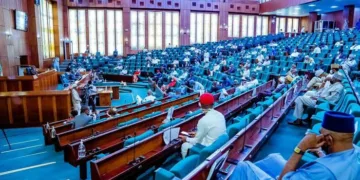A human rights lawyer, Ogechukwu Maureen Okafor, has condemned the continued silence of South-East governors on the recent demolition of properties and markets owned by Igbo traders in Lagos State.
She feared that continued inactions by the leaders only emboldens the act believed could fuel social unrest.
Okafor, in a statement made available to journalists in Lagos on Friday, stated that the demolitions reflected a pattern of economic and ethnic marginalisation, requiring urgent national attention.
She further alleged that the Lagos State Government was targeting thriving Igbo-owned businesses under the guise of urban renewal, lamenting that failure of South-East leaders to act suggests indifference to the plight of their people.
Meanwhile, the Lagos State government had since defended the demolition exercise it carried out in some areas of the state, asserting that affected buildings were illegal and lacked proper permits.
But, Okafor maintained that the act was a deliberate economic strangulation of a specific ethnic group, whom she believed had contributed immensely to Lagos’ prosperity.
“I am astonished that the five governors of Igbo States have maintained a deafening silence in the face of blatant discrimination and systematic destruction being meted out to Ndi Igbo by the Lagos State Government.
“From Ladipo Market to Computer Village, Igbo-built markets and estates are being demolished in what is clearly a deliberate economic strangulation of a people who have greatly contributed to Lagos’ prosperity, while our leaders look the other way,” she claimed.
The lawyer maintained that continued disenfranchisement of a major ethnic group could ignite despair and trigger unrest.
She described the demolitions as both morally reprehensible and constitutionally untenable, noting further that it undermines the federal principles that guarantee freedom of movement and residence for all Nigerians.
“If other states were to reciprocate such hostility toward Yoruba settlers or any other ethnic group, the cherished constitutional right to freedom of movement and residence across the federation would be rendered meaningless,” she stated.
She stressed further that the issue transcends ethnic lines, describing it as a national wound that can still heal with timely and intentional interventions.





